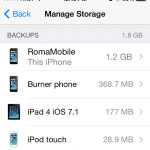Police in the Canadian city of Ottawa said they arrested a 16-year-old male charged with carrying out so-called “swatting” attacks that targeted 30 North American targets. One of the targets included KrebsOnSecurity reporter Brian Krebs , who was previously on the receiving end of a vicious swatting attack that resulted in a team of police pointing guns at him as he opened the front door of his Virginia home. Krebs said the recent attacks were preceded by taunts from someone controlling the Twitter handle @ProbablyOnion . The last tweet made from that account, made on Thursday, stated: “Still awaiting for the horsies to bash down my door.” The individual didn’t have long to wait. That same day, the 16-year-old was arrested, according to press releases here and here issued by the Ottawa Police Service and the FBI, respectively. Swatting refers to the act of knowingly giving authorities false information about bomb threats, the taking of hostages, or similar threats in progress with the goal of tricking heavily armed police to raid the location of an innocent person or group. According to authorities, the unnamed 16-year-old allegedly carried out swatting attacks on 30 targets, including schools in North America that responded with lockdowns or evacuations. The minor was charged with 60 criminal offenses, including public mischief, mischief to property, uttering death threats, and conveying false info with intent to alarm. Read 1 remaining paragraphs | Comments
Continued here:
Teen arrested for 30 “swatting” attacks against schools, security reporter





